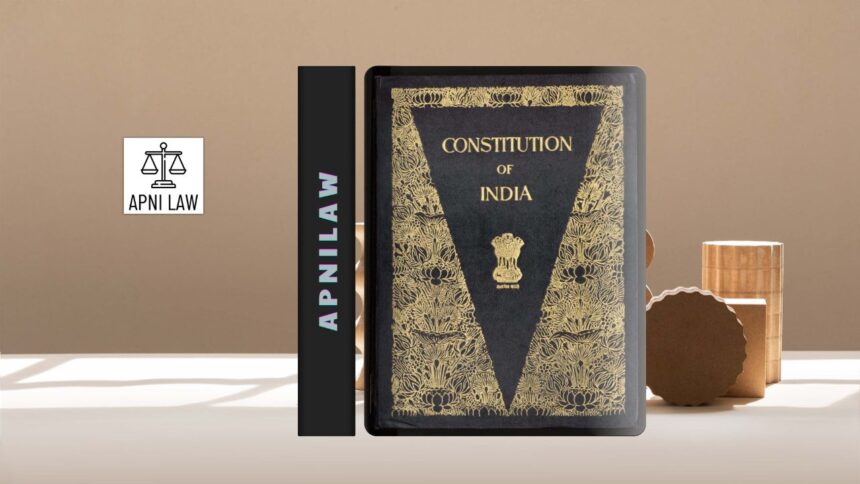Introduction
The Indian Constitution recognizes liberty as the foundation of democracy. To safeguard this principle, it enshrines the Right to Freedom under Articles 19 to 22. These provisions guarantee essential freedoms to citizens while also balancing them with reasonable restrictions for maintaining public order, morality, and national security. Together, Articles 19 to 22 form the heart of democratic rights, empowering individuals to speak, move, associate, and live with dignity under the protection of law.
Article 19: Six Fundamental Freedoms
Article 19 grants six essential freedoms that form the core of democratic life. These include the freedom of speech and expression, the right to assemble peacefully without arms, the right to form associations or unions, the freedom to move freely throughout India, the right to reside and settle in any part of the country, and the right to practice any profession or trade. These freedoms empower citizens to participate fully in the social, political, and economic life of the nation. However, they are not absolute. Parliament may impose reasonable restrictions in the interest of sovereignty, integrity, public order, morality, or security of the state.
Article 20: Protection in Respect of Conviction for Offenses
Article 20 ensures important legal safeguards for individuals accused of crimes. It prohibits ex post facto laws, meaning no one can be punished for an act that was not an offense when committed. It also safeguards against double jeopardy, which prevents a person from being tried twice for the same offense. Finally, it protects against self-incrimination, ensuring no one can be compelled to testify against themselves. These protections highlight the Constitution’s commitment to fairness in criminal justice.
Article 21: Protection of Life and Personal Liberty
Article 21 is one of the most widely interpreted provisions of the Constitution. It declares that no person shall be deprived of life or personal liberty except according to the procedure established by law. Over the years, the Supreme Court has expanded its meaning to include rights such as the right to privacy, the right to a clean environment, the right to livelihood, and even the right to die with dignity. By doing so, Article 21 has become a cornerstone of human rights in India, ensuring that liberty and dignity are protected beyond narrow definitions.
Article 22: Protection of Rights in Case of Arrest and Detention
Article 22 provides safeguards for individuals who face arrest and detention. It grants every arrested person the right to be informed of the reason for arrest, the right to consult a lawyer, and the right to be presented before a magistrate within twenty-four hours. It also restricts detention without trial beyond a certain period, except under preventive detention laws. Preventive detention has been a controversial feature since it allows the state to detain individuals on suspicion to prevent threats to public order or security. While critics view it as excessive, supporters argue it is necessary in extraordinary circumstances to protect national interests.
Significance of the Right to Freedom
The Right to Freedom ensures that every individual in India can live as a free citizen while respecting the needs of society. By balancing personal liberty with reasonable restrictions, the Constitution prevents both authoritarianism and anarchy. This right also gives citizens the tools to challenge arbitrary state action, making it a vital element of constitutional democracy. The interplay of Articles 19 to 22 ensures that freedom is meaningful, secure, and exercised responsibly.
FAQ Section
1. What freedoms are guaranteed under Article 19?
Article 19 guarantees six freedoms: speech and expression, peaceful assembly, forming associations, free movement, residence, and choice of profession or trade.
2. Why is Article 21 considered the heart of fundamental rights?
Article 21 protects life and liberty in the broadest sense. Courts have interpreted it to include privacy, dignity, livelihood, and other essential human rights, making it the most expansive and dynamic provision.
3. Does preventive detention under Article 22 violate the Right to Freedom?
Preventive detention restricts liberty, but the Constitution permits it in exceptional cases. Safeguards such as limited duration and judicial review exist to balance state power with individual rights.
Conclusion
Articles 19 to 22 of the Constitution collectively safeguard the Right to Freedom, which is indispensable to democracy. They guarantee speech, movement, profession, and personal liberty, while also ensuring legal protections against arbitrary punishment or arrest. At the same time, they empower the state to impose reasonable restrictions to protect security, order, and morality. By striking this balance, the Constitution ensures that freedom is not an unchecked privilege but a structured right that strengthens both individual dignity and national unity. The Right to Freedom continues to evolve through judicial interpretation, reminding us that democracy thrives only when liberty and responsibility go hand in hand.
For any specific query call at +91 – 8569843472








FONE es un portal educativo diseñado para apoyar el aprendizaje mediante el acceso fácil a recursos educativos de calidad, herramientas e información. Ayuda a estudiantes y aprendices a fortalecer sus conocimientosread more